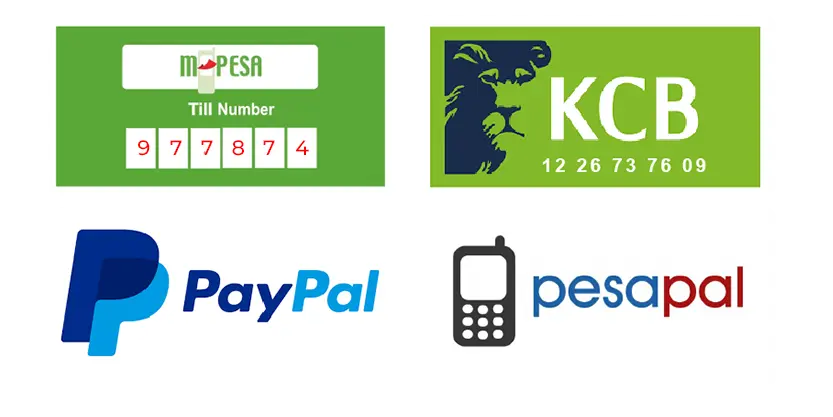How to Register a Private Limited Company In Kenya? Registration of company kenya? Registering your Private Limited company in Kenya represents the first stride towards forging a prosperous business endeavour. Private limited companies, more commonly referred to as LTDs, stand as a favoured business framework within Kenya.
These entities are under the ownership of a designated group of shareholders who avail themselves of limited liability protection, shielding them from personal liability concerning the company's debts. Mandatory submission of annual financial statements to the Kenyan government is incumbent upon private limited companies, ensuring transparency and adherence to regulatory requirements.
Both residents and foreigners have the opportunity to register a private limited company in Kenya, provided they adhere to the laws governing limited companies in the country. Despite the commonly held belief that commencing a private limited company is a convoluted process, it is feasible for even a solitary individual to own and manage such an enterprise.
To commence the registration process for a private limited company in Kenya, the most straightforward approach is to utilise the government's online service portal, eCitizen. Through creating an account on eCitizen, individuals can seamlessly progress with the registration process.
For Kenyan citizens lacking an eCitizen account, registration can be easily accomplished by visiting accounts.ecitizen.go.ke/en/register and furnishing their ID number and passport photo. It is imperative for all individuals, encompassing aliens, diplomats, foreigners, and visitors, to present valid identification documents during the registration procedure.
Familiarising oneself with the diverse categories of businesses in Kenya is essential before initiating the registration process for a private limited company, to preclude potential issues such as application cancellation or delays in company registration.
How to Register a Private Limited Company In Kenya
Step 1: Identify your ideal Business Structure
Before initiating the company registration process, it is vital for the business owner to possess a comprehensive understanding of the particular business category within which their company operates. This fundamental understanding is necessary for making well-informed decisions and ensuring adherence to pertinent regulations and prerequisites.
The business owner should ascertain whether their company falls under a:
- Limited Liability Partnership (LLP),
- Private Limited Company, or
- Company Limited by Guarantee.
- A publicly Traded company
Each of these business structures possesses unique characteristics and ramifications, thus comprehending the distinctions between them is pivotal for selecting the most appropriate option for the company's operations and prospective expansion.
Limited Liability Partnership (LLP)
An LLP, which stands for Limited Liability Partnership, presents a distinctive business framework that amalgamates advantages from both companies and partnerships. Within an LLP, partners bear no personal liability for the debts or responsibilities of the business beyond their initial investment, thus safeguarding their personal assets from potential risks.
In contrast, the shareholders of a private limited company in Kenya enjoy a comparable level of protection, ensuring the security of their personal assets even in the face of financial challenges or obligations to external parties such as banks and creditors.
Moreover, LLPs are recognised for their advantageous tax treatment, permitting tax benefits and losses to be passed through to individual partners and taxed at their respective income tax rates. This feature adds to the appeal of LLPs as a business structure for professionals like lawyers and accountants, who value the liability protection and flexibility offered by this model.
A Private Limited Company (LTD)
A Private Limited Company (LTD) is a business entity characterised by ownership divided into shares held by a select group of individuals or companies. Unlike a public company, an LTD cannot issue shares to the general public. A primary advantage of an LTD is the limited liability it offers to owners, safeguarding their personal assets from the company's debts.
LTDs are noted for their structured nature, facilitating the smooth transfer of ownership through the purchase or sale of shares. They are often perceived as more reputable and secure, thus appealing to investors seeking potential growth and profitability. Additional features of an LTD include the presence of a board of directors, a minimum of 2 and a maximum of 50 shareholders, and a distinct legal identity. This legal separation ensures that the company's debts and liabilities do not affect the personal assets of its owners.
A Publicly Traded Company (PLC)
A publicly traded company is a legal entity empowered to sell its shares to the general public. The company retains the autonomy to determine when and how it offers its shares, and retains the option to abstain from doing so.
Shareholders of a publicly traded company enjoy limited liability, ensuring protection of their personal assets should the company incur debts. The risks associated with investments made by the company are borne by the company itself, alleviating concerns for shareholders and directors.
Moreover, a publicly traded company possesses a distinct legal identity, entailing its own set of obligations and entitlements for directors and shareholders. The company's debts remain separate from the personal debts of those associated with it.
If contemplating the establishment of a business with aspirations for expansion and the attraction of capital from investors, pursuing a publicly traded company structure may be optimal. The heightened level of transparency associated with this company type renders it an enticing option for investors and larger enterprises.
A Company Limited by Guarantee (CLG)
A Company Limited by Guarantee (CLG) is a distinct organisational structure frequently utilised by non-profit entities, charitable organisations, or clubs. In contrast to other company formats, a CLG does not possess shareholders or share capital. Instead, it operates on the basis of a commitment made by its members, who pledge to contribute a predetermined sum should the company face financial challenges.
The members of a CLG are shielded from personal liability for debts exceeding this agreed-upon amount, thus safeguarding their personal assets. CLGs place emphasis on their social or charitable objectives over profit-making, relying on memberships and donations to finance their operations. Now that you are acquainted with the various business structures available in Kenya, let us delve into the step-by-step process of registering a Private Limited Company in Kenya.
Step 2: Prepare the Requirements for Registration
- Unique Business name – Come up with at least three distinct and unique names. This is an essential step in your registration process. Search on the internet first before turning to the search feature provided for in the eCitizen BRS website.
- Perform a name search – Login through the eCitizen & follow the instructions. Else go through https://brs.go.ke/ and submit your choice of 3 preferred names and the full application online.
- Define Business Objectives - Establish your company's mission, core products and services, and complete contact details for all directors, shareholders, and beneficial owners to help you clearly outline your goals.
- Identification - For the purpose of identification, provide copies of the directors, shareholders, and beneficial owner's passports as well as passport-sized pictures.
- KRA Pins - Ascertain and furnish Kenya Revenue Authority (KRA) PINs for all pertinent persons, and indicate the professions of essential staff members in the organization.
- Relevant certifications - Make sure that organizations providing professional services, like engineering or healthcare, have the necessary credentials to show that they are experts in their fields.
Step 3: Register your Company with eCitizen
- You must log into your eCitizen account in order to access the eCitizen Portal. To accomplish this, go to https://accounts.ecitizen.go.ke/en/login on your internet browser.
- After logging in, you must proceed to the Business Registration Services area. Locate and choose the "Business Registration Services (BRS)" You may be redirected to https://brs.go.ke or its equivalent.
- The BRS section has an option that you can choose, "Private Limited Company." Once you click on this, the application form will be displayed to you.
- Carefully fill out the form with all the information required, taking your time. This includes giving information about the applicant(s) and their roles, confirming the adoption of standard articles of association, listing at least three unique company names in descending order of preference, describing the nature of the business, identifying the primary activities, mentioning the start date, mentioning the accounting period, and providing an estimated turnover figure.
- Company address - In addition, you must explicitly mention the company's registration address, including any branch locations. Indicate the building's name, the county, the district, the locality, the road or street, the postal code, the mobile number, and the firm email address.
- Share detail - It is imperative to specify the share category, the aggregate number of shares, and the individual share value. Recall that there is no maximum share capital requirement and that the minimum is KES 100,000.
- Lastly, give each beneficial owner, director, and shareholder detailed information. Included in this are their occupation or profession, designation, KRA PIN, national ID or passport, date of birth, phone numbers, email addresses, residence address, passport-size photo, and the quantity of shares they own.
- Add any other owners that do not fit within the directors' or shareholders' category as beneficial owners.
- Those who possess at least 10% of the issued shares or have the ability to exercise at least 10% of the company's voting rights are considered beneficial owners, whether directly or indirectly.
Step 4: Finalize the Registration Procedure
- Download and Print Registration Forms: After submitting the online application, you must download and print specific registration documents such as
- CR1 for company signatories,
- CR2 for the Memorandum of Association,
- CR8 for residential and business addresses,
- BOF1 for the Register of Beneficial Owners and the Statement of Nominal Capital.
- Sign, Scan, and Upload Registration Forms: After meticulously signing each printed registration form, scan it into a high-quality PDF file and upload it to the eCitizen portal.
- Examine, Submit, and Make Payment: Before submitting, carefully examine all submitted information to confirm correctness and completeness. Once you're confident, submit the application and go to the payment portal, where you may choose from a variety of payment options like MPESA, Airtel Money, T-Kash, and several banks.
- Cost Structure: KES 10,650 is the registration cost for a private limited company (PVT), and there are extra fees for other business registration services. Go to https://brs.go.ke/fee-schedule-companies-registry/ for the whole fee schedule.
- Approval and Certificate Issuance: Your application will be carefully examined by the BRS staff to ensure payment and correctness. You will obtain a Certificate of Incorporation via your eCitizen account if your verification is completed.
How to Convert a Business name into to a company
Step 1: Have the Essential Requirements for Company Registration
- Your company's name ought to be distinct and easy to remember. It needs to be representative of the goals and operations of your business.
- It's critical to specify the precise commercial endeavours your organization plans to pursue. This will make the extent of your business more understandable to prospective partners and clients.
- List the products and services that your business intends to sell or provide. This will present them with a clear picture of the goods or services your company offers.
- Make sure passport-sized pictures are included with identity documents that directors, shareholders, and beneficial owners provide. This will assist in confirming the identities of the people working for the company.
- Give each director, shareholder, and beneficial owner complete contact details. This contains precise phone numbers, email addresses, physical addresses, and postal addresses. This will guarantee openness and efficient communication inside the business.
- It is crucial to have each director, shareholder, and beneficial owner's KRA PIN (Kenya Revenue Authority Personal Identification Number) and to give it to them. This is required in order to comply with regulations and for tax purposes.
- Clearly state what each director, shareholder, and beneficial owner does for a living. This will shed light on the knowledge and abilities that every person contributes to the business.
- Your business has to have the necessary professional credentials if it plans to offer professional services like healthcare, engineering, or architecture. These certificates show that your business is qualified and experienced in providing these specific services.
Step 2: Convert Business to Company on eCitizen
You can follow these procedures to successfully register your private limited company in Kenya if you already have a registered business name.
- Start by logging into your account on eCitizen.
- Go to the Business Registration Services (BRS) area after logging in. This section contains a list of all the company names you have registered.
- Select the business name you want to become a company by clicking the "view" button that is situated in the right column next to it. This will allow you access to a variety of corporate information.
- To continue, select "Maintain A Company" from the menu in the upper right corner of the screen. Click the drop-down menu next to the "make application" option under the business information section. It is essential to remember that selecting the option displayed in the menu bar is not a good idea.
- A list will show up once you choose the "make application" option. Click on "Cessation to Change" from this list. At this point, you should proceed with care since you have the choice to close your business. Alternatively, select for the private limited corporation (PVT) option.
What to do after you have registered your company?
1. Create a company logo and brand style guide
Developing a logo is an essential part of establishing your brand. A unique sign that makes you stand out from the competition in your sector is a logo. It's a means of communicating your identity to your consumers, not only about having an eye-catching image or a clever use of colour and typeface.
Why a logo:
- Brand Identity: The fundamental component of a company's visual identity is its logo. It serves as a potent visual cue that quickly establishes an emotional connection with customers by embodying the brand's concept, mission, and personality.
- Memorability: A memorable logo has the ability to leave an enduring impression on customers' minds that lasts for a long time after first exposure.
- Credibility and Professionalism: In the corporate world, impressions count greatly. A well-crafted and expertly designed logo communicates credibility and dependability, informing customers that the company is respectable and trustworthy.
- Flexibility: A well-crafted logo may be used to a wide range of platforms and applications without losing its integrity.
The foundation of a company's identity is its brand style guide, which offers a thorough structure that captures its essence, values, and visual language. This is the epitome of consistency and professionalism, which is necessary to develop a unique and distinctive brand image.
Why Brand style guidelines:
- Consistency: A brand style guide guarantees consistency in all brand communications, print or digital, which increases customer awareness and confidence. Consistent adherence to established typefaces, colours, graphics, and tone of voice reinforces the brand's trust and dependability.
- Clarity: It acts as a lighthouse, showing the way for both external and internal partners. Ambiguity or misinterpretation are eliminated with explicit restrictions on logo usage, typography, and brand message. With this clarity, everyone can more easily coordinate their activities with the overall goals and vision of the business.
- Efficiency: A brand style guide simplifies the design and content generation process by offering a clear blueprint. Designers and marketers may work more productively and save time and money by using predetermined templates and guidelines. This effectiveness guarantees that every piece of material created appropriately matches the brand's identity in addition to increasing productivity.
- Protection: A carefully constructed brand style guide serves as a barrier, preventing the brand from being diluted or misrepresented. It strengthens legal protection by defining guidelines for trademark usage and licensing, prohibiting unauthorized changes or exploitation of brand assets. This proactive strategy protects the integrity of the brand in the cutthroat industry and lessens the chance of it eroding. See logo types and pricing in 2024
2. Reserve a domain name
A domain name functions as a company's online address and virtual entry point for consumers to reach its website. More than just a web address, a domain name is a strategic tool that supports and strengthens a company's online presence and brand identity.
You will have to buy one if you want to protect your company name. This is due to the fact that only you can use your domain name while it is operational. A firm owns its domain name, and no other company may use it.
Short domain names, such as those with 6 to 16 characters, work well. They take up less space on marketing materials, are simpler to read, and are more memorable to visitors - Keep it short.
Why you need a domain name for your business
- Online Presence - A domain name provides a unique and easily identifiable web address, allowing customers to locate the business effortlessly in the vast expanse of the internet.
- Brand Recognition - A distinctive domain name sets the business apart from competitors, making it easier for customers to remember and revisit the website, thereby strengthening brand loyalty and trust.
- Credibility and Professionalism - A bespoke domain name lends an air of credibility and professionalism to a business's online presence. In a landscape where trust is paramount, a custom domain inspires confidence among customers, signalling that the business is established and reputable.
- Brand Control and Flexibility - From creating branded email addresses to developing subdomains for specific products or services, businesses enjoy unparalleled flexibility in shaping their digital footprint.
- SEO and Visibility - Companies may improve their chances of ranking higher in search engine results pages (SERPs), which will increase online exposure and draw in organic visitors, by adding relevant keywords or phrases to their domain.
3. Setup Hosting and Company Emails
In the digital sphere, a Domain name and email address play a pivotal importance in ensuring: Brand Consistency, Professionalism and Credibility, Brand Ownership and Control, Marketing and Branding Opportunities and Scalability and Flexibility.
NOTE: You may still reserve a domain name without hosting, however hosting is required if you want to use your domain for business emails – Scale at your desired phase. Domain hosting packages and domains
4. Setup social media pages and accounts
In the contemporary business landscape, a social media presence is no longer a mere option but a strategic imperative for businesses seeking to thrive and succeed.
In essence, a social media presence is not just about establishing a digital footprint; it's about building meaningful relationships, fostering brand loyalty, and driving business growth. By embracing social media as a strategic tool for communication, engagement, and insight, businesses can unlock a world of opportunities to connect with their audience, differentiate themselves from competitors, and thrive in an increasingly digital-centric world. Why you need a page for your business:
- Enhanced Brand Visibility
- Engagement and Community Building
- Brand Authenticity and Transparency
- Marketing and Promotion
- Customer Insights and Market Research
One excellent strategy to protect your brand is to use the name while creating social media profiles for your business. Once you've done it, no one will use your name to make the social accounts.
Company/Business social media accounts enable you to monitor users and posts to find out what material people enjoy engaging with and what posts they see. Having a business social accounts and pages also makes it convenient to use sponsored and promoted posts and advertisements. Additionally, there’s separation of concerns as these items can be categorised as company assets and therefore sharing of credentials to an account manager becomes easy as non-personal credentials are not involved.
You will want a corporate email address in order to register your social media profiles and manage all of your alerts in one location. In the event you reserved a domain address without hosting, it’s imperative to create a company Gmail account which will later be used to manage Google services relevant to your business and website e.g., Google analytics, Google my business, Google Drive, Search console, Google cloud, YouTube etc.
5. Build a Business/Company website and submit to search engines
The Finest Design Begins with Your Digital Marketing Plan and Your website should be at the heart of it. A website is the cornerstone of a company's online presence in the modern digital era, providing a wealth of advantages and expansion prospects. Find a trustworthy and reputable web designer in Kenya to assist you in creating an engaging corporate website that reflects your business identity and appeals to your target audience. Make sure your designed website is submitted to search engines for Indexing & has analytics integrated.
6. Create Google my business page
Your registered Business may benefit greatly from having a Google My Business (GMB) page. It is an essential tool for increasing online exposure, interacting with consumers, and fostering business expansion. This is why it's essential:
- By guaranteeing that your company show up prominently in Google Maps and Search results, a GMB profile helps businesses reach more local clients who are actively looking for their goods or services.
- Potential clients are given confidence and trust by a well-maintained GMB profile, which indicates the legitimacy and reputation of the company. Businesses show transparency and dependability by giving correct information, such company hours, contact information, and customer evaluations. This increases their credibility in the eyes of customers.
- By encouraging two-way communication, companies may respond to questions from customers, handle problems, and build strong bonds with them—all of which promote advocacy and loyalty.
- Businesses may gain important data from GMB about consumer engagements, including as search queries, views, and actions made on the profile. Businesses may obtain useful insights that guide their marketing efforts, help them comprehend client preferences, and point out areas for development by analysing these indicators.
- A business's exposure in local search results may be greatly increased by having a well-optimized GMB profile, which can increase foot traffic to physical locations and increase online transactions. Businesses may outperform rivals in their local SEO market, draw in local clients, and enhance their local SEO performance by using tools like Google Posts, Q&A, and characteristics.
- GMB provides companies with an affordable marketing option that yields noticeable outcomes. Businesses may use GMB to market their brand, highlight their products, and reach a specific demographic without breaking the bank because there are no setup or maintenance expenses.
You must have a Google account (Create a new Google account specifically for your business if you don’t have one) in order to create a Google My Business profile. Visit their website, then log in. Provide the necessary information as directed.
Enter your company's name, address, and phone number, then confirm that it is a legitimate enterprise. Add your company hours, message options, business description, and photographs to personalize your profile.
7. Setup your preferred payment methods
Because your company exists to generate revenues, it is critical to devise simple methods for customers to make payments. This might include cash, bank deposits, or internet solutions such as Paybills, Till Numbers, PayPal, Pesapal, Flutterwave, Jambopay, Cybersource, iPay, Kopokopo, DPO Group, Mpayer, Africa's Talking, Direct Pay etc. Make it a business policy to channel payments through preferred choices for improved accounting.
Opening accounts with most of these financial entities requires some level of documentation. Submit all the relevant documentation as per request to open and activate your account. This could be Your Certificate of Incorporation, Memorandum and Articles of Association, Tax PIN certificate, company seal, ID cards for directors and signatories, Invoices or receipts, Business registration etc
8. List your business entity on business Directories
Business listing websites are essential tools for organizations of all sizes including your newly created company/Business, providing several advantages that contribute to their overall success and growth. In a digital context where online exposure and accessibility are critical, company listing websites provide as virtual gates for companies to interact with potential consumers, create reputation, and promote business growth. Example of such websites in Kenya include Jiji, PigiaMe, Kenyaplex, Jumia, Star classifieds, Yellow Pages Kenya, Kenya Business Directory, Kenya biz list, Facebook, Property24 etc.
In most cases you only need to sign up using your email address and password. Use any of the email addresses created above to register. Once registered list your services and goods in the best way possible – quality posters and body text. These platforms are both free, freemium and premium. Choose according to your financial muscle.
9. Branding and Marketing
Branding refers to a set of actions that try to shape and define a company's or product's identity, perception, and placement in the eyes of customers. Main activities to undertake in your branding efforts: Brand Strategy Development, Brand Identity Design, Brand Messaging, Brand Positioning, Brand Awareness Building, Brand Experience Management, Brand Monitoring and Analysis and Brand Extension and Adaptation
To promote your business products, services, or ideas to target audiences with the goal of achieving specific business objectives requires a wide range of marketing efforts with the core aim of understanding consumer needs and preferences, creating value propositions that resonate with them, and effectively communicating those propositions through various channels. Some of the main Marketing activities will entail: Market Research, Product Development, Brand Management, Marketing Strategy, Advertising and Promotion, Digital Marketing, Public Relations and Sales and Distribution
Advantages of a Limited Liability Company in Kenya
One of the most common business formats in Kenya is the Private Limited Company. Allow us to outline some of its pros and pitfalls.
- Limited Liability: Shareholders' liability is limited to the sum of their equity contribution, protecting personal assets from the company's financial commitments and liabilities.
- A Private Limited Company has an autonomous legal personality distinct from its owners. It has the authority to possess assets, enter into commercial agreements, and start or defend legal proceedings in its own name.
- Continuous Existence: The company's existence remains constant, regardless of changes in shareholders or directors. Its survival is not dependent on the lives of its companions.
- Ease of Funding: Raising funds by issuing shares to investors, venture capitalists, or angel investors is simpler. This framework encourages foreign investment.
- Tax Advantages: Private Limited Companies may qualify for a variety of tax breaks and exemptions, making them tax-efficient businesses.
- Credibility and Trust: Having "Pvt. Ltd." in your company name can create greater confidence and trust in consumers, suppliers, and partners.
Disadvantages of a Private Limited Company in Kenya
- Compliance Burden: Respond to regulatory requirements such as financial reporting, filings, and audits.
- Complex Setup: The process and expense of management are higher than with more superficial systems.
- Restricted share transfers; maximum of 50 shareholders in Kenya.
- Public Disclosure: Financial information is publicly available, compromising privacy.
- Exit Complexity: Compared to other arrangements, selling or leaving is more complex.
- Slower Decisions: The involvement of shareholders and directors may result in slower decisions.
Ways to minimize company registration costs
If you're wanting to decrease business registration fees in Kenya, you might consider the following strategies:
- Do It Yourself: Rather of employing a professional service provider, you may complete the registration procedure yourself. This can save you money, but it involves extensive study and knowledge of the registration requirements and process.
- Choose a sole proprietorship or partnership: Sole proprietorships and partnerships often have cheaper registration expenses than limited liability companies. To save money in the beginning, consider launching your firm as a single proprietorship or partnership.
- Register a corporation with the lowest allowed capital. As previously stated, a business with a share capital of more than 5 million KES draws higher company registration fees in Kenya.
Remember that, while it is necessary to save expenses, it is also critical to guarantee compliance with all legal requirements and the integrity of your business registration process.







